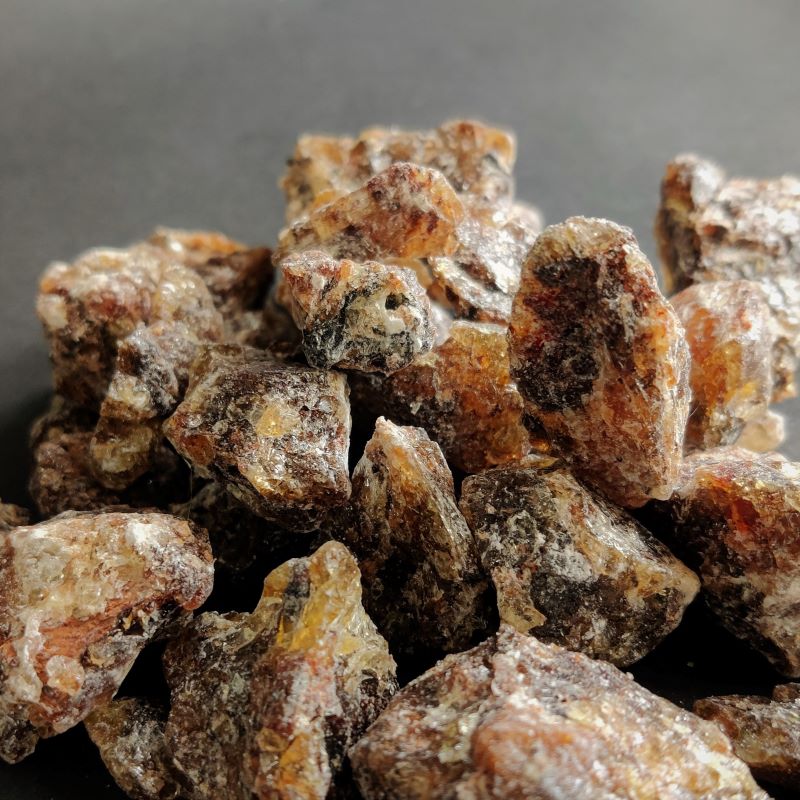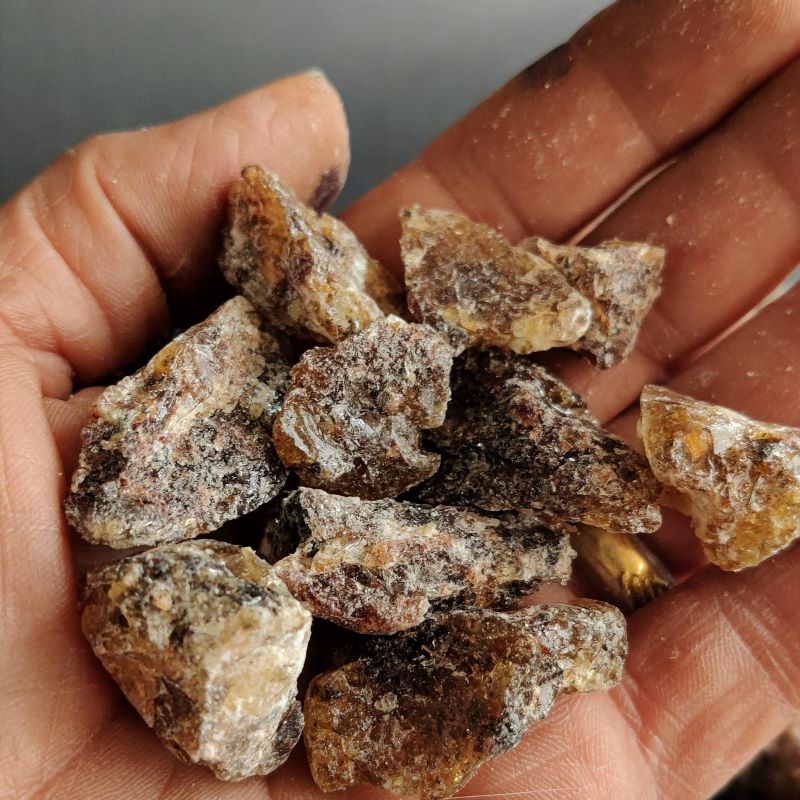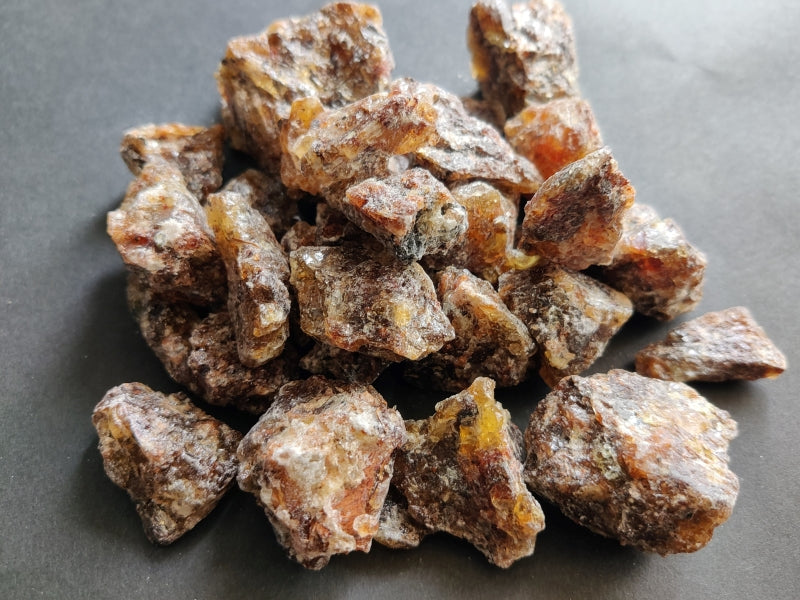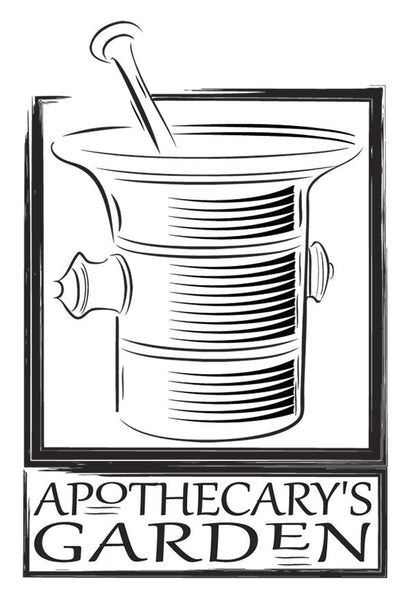


Kenyan Frankincense-White. RARE!
White Kenyan Frankincense is very rare, sweet-smelling resin with all the expected notes of a fine Frankincense resin.
Since it is rare that I ever have the usual black resin of Commiphora confusa resin in the shop, it is even more radical that I have the unique "White" confusa resin available for sale.
Kenyan Frankincense is collected from a tree that bears 3 different colours and types of resin, the white resin is the most coveted and used locally for chewing, incense and medicine.
Commiphora confusa of the Myrrh family of trees has the chemical and aromatic makeup of a Frankincense and not a Myrrh resin. For this reason, Commiphora confusa goes by "Kenyan Frankincense" in commerce, and its resin is considered a Frankincense.
White Commiphora confuse-AKA White Kenyan Frankincense is one of the most perplexing resins I have encountered. Naming it confusa is putting it mildly.
Named thus due to the radically different forms its flowers exhibit, the list of confusing and perplexing inconsistencies of this fragrant oleoresin goes far beyond variations in its sex organs.
COMMIPHORA CONFUSA
-Is also known as Kenyan Frankincense even though it is a member of the Myrrh family and in no way a Boswellia or Frankincense.
-It looks very similar to the Boswellia neglecta resin which is also endemic to Northern Kenya and is often mixed in with Frankincense neglecta by collectors and middlemen.
-The fragrance profile of this Frankincense look-alike is, (confusingly), quite similar to that of Frankincense neglecta. -Though they are often distilled together as B. neglecta, C. confusa has distinct aromatic qualities not found in B. neglecta.
-While Boswellia neglecta is confusing enough in that it presents 2 distinct types of resin, a granular black callus resin and a clear thurimel or honey Frankincense resin, C. confusa trees yield 3 different types of exudates, two similar to B. neglecta and one a translucent reddish hue that is odourless and made up of water-soluble gum.
On the bright side, Commiphora Confusa does exhibit some traits that are exclusively those of a Commiphora.
-Like other Myrrh species, it grows in the dry valleys, plains and bushland, while Frankincense trees grow on rock at higher elevations.
-Though its fragrance is similar to Frankincense neglecta, and indeed it shares many of the same monoterpenes that give B. neglecta its distinct aroma, Commiphora confusa also contains many chemical compounds that are exclusively found in the Commiphora or Myrrh family.
-When compared side by side, it is evident that this Kenyan Frankincense has a different fragrance, whether fresh, as an essential oil or burned on the coals than that of Boswellia neglecta. In my experience, C. confusa has a distinct sweet herbaceous scent that is absent in B. neglecta. While Frankincense neglecta possesses notes reminiscent of our Northern Fir trees, they are absent in C. confusa.
-Though C. confusa resin shares a similar dark, grainy exterior to B. neglecta, this Commiphora bears the auburn hue of myrrh species and consistently reveals a reddish center, unlike the tar-black core found in B. neglecta.
-Another distinction between these 2 almost identical resins is that lumps of B. neglecta resin will adhere to one another forming large balls where C. confusa lacks this external stickiness and is found for the most part in small loose pieces reminiscent of cheese curds.
-Like Boswellia negelecta, C. confusa trees cannot be tapped to produce resin. This is an assurance that the resin is sustainably harvested. It will appear only from natural injuries to trunk and limb from romping elephants, goats or Baboons that enjoy nibbling on its bark. Pastoralist tribes like the Samburu collect this resin as they roam with their herds through the bushland. They do not practice traditional tapping and harvesting methods on these trees.
Like the B. neglecta they collect, the Samburu women distinguish between both a light and a dark C. confusa. Yes...I had to see this for myself and it is true!! Initial injury generates a clear "thurimel," a honey-type resin devoid of water-soluble gum which hardens translucent and lightly golden. After the injury, the tree creates "Traumatic Resin Ducts" as does our Northern Spruce. These ducts then generate a special therapeutic sap called "Callus Resin", that acts as a bandage and promotes the growth of protective tissue that heals the wounds, creates scar tissue and isolates healthy flesh from disease. In Scandinavia, the Spruce callus resin is used in traditional salves for slow-healing wounds, diabetic ulcers and post-surgical wounds.
Though similar in many ways to a Frankincense, C. confusa, like all the Myrrh family, is ruled Astrologically by the Moon.
Kenyan Frankincense has a signature aroma and complex, sweet herbaceous notes that make it an exceptional incense material on its own or compounded with other aromatics.
Dan
Materials: Commiphora Confusa, Kenyan Frankincense, White Confusa Resin.








